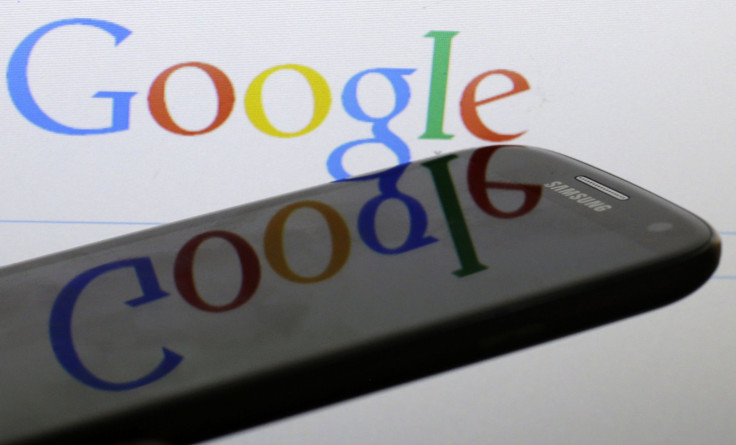Apple, Samsung, Google Stop Suing Each Other And Start Focusing On Patent Reform

With Apple, Samsung and Google calling a truce on their interlocking patent lawsuits, the money they’ll save in legal costs and damages is now expected to go to innovation and patent reform.
Good news for consumers, bad news for patent trolls.
Apple and Google on Friday announced an agreement to cease patent litigation with each other, followed by news Monday that Apple is in similar talks with Samsung. Google and Apple ended an almost four-year-long lawsuit with their agreement.
The tech giants’ anti-litigation agreements are similar to wartime cease-fires, says patent lawyer Michael Feigin, who runs a firm based in New York City. “They’re armistice agreements,” he told International Business Times. “Both companies [Apple and Samsung] have enough money” and a large enough patent portfolio “to sue each other into oblivion.” Agreements like these, he says, create the ability to compete and innovate without worrying about lengthy and costly suits.
While the main goal of these agreements is freer competition, they’re also aiming at patent reform.
The joint statement from Apple and Google last week noted they have “agreed to work together in some areas of patent reform.” This could mean attacking a big thorn in the side of the tech industry: "non-practicing entities" (NPEs), better known as patent trolls.
The problem with patent law is that patents expire after 20 years, but technology becomes ubiquitous within three to five years, says Feigin. So NPEs can buy up patents that were awarded more than 10 years ago, and then sue companies for relatively commonplace practices.
For example, the current case of patent troll MPHJ, which bought a patent for a scan-to-email process, originally awarded in 2001. In the decade that followed, this process became standard in offices, and in 2013 MPHJ started sending out letters to small companies with 20 to 50 employees using the process, stating they needed to license the technology -- which costs a whopping $1,000 per employee.
Apple, Samsung and Google have all been subject to patent infringement cases brought by NPEs. According to a report by Statista, in 2013 the three companies had a combined 136 patent infringement cases filed against them, with Apple on the receiving end of 59 of them.
Patent law is badly in need of reform. New legislation proposed last year called the Innovation Act of 2013 passed the House of Representatives with flying colors, 325-91. The bill seeks to make it easier to defend against NPEs, even going so far as to allow defendants to countersue for the costs of their defense.
After soaring through the House, the bill has stagnated in the Senate, but adding support from three of the world’s largest and most valuable companies could reinvigorate it. The office of Bob Goodlatte R-Va., urged the Senate to act last Wednesday, saying, “Effective patent reform legislation requires the careful balance that was achieved in the Innovation Act. … The Act, which was publicly vetted over the course of many months and has the support of 325 members of Congress and the president, is the place to start.”
Some are concerned that the support from tech giants could come at a cost, as their lobbyists may favor the big players’ interests over smaller innovators’. But that shouldn’t be a looming concern, says Adi Kamdar, an activist with the Electronic Frontier Foundation who specializes in patent and free speech issues.
“These companies are engaging in tons of patent litigation even when [they] are the biggest proponents of patent reform,” Kamdar told IBTimes. “The irony isn’t lost on them.”
Kamdar thinks that the money, time and effort saved via anti-litigation agreements will be spent on research and development. He recalls the oft-cited statistic that Apple and Google spent more money on patent litigation fees in 2012 than on R&D.
While current patent reform legislation is mainly focused on reducing patent trolling, Kamdar believes what the industry needs most is patent quality reform. Right now patents are being awarded for general and broad ideas, which is what patent trolls depend on, he explains.
“A new review system would allow companies to invalidate poor patents,” meaning patents that are too broad in scope, he says. Currently, a patent must be “non-obvious and useful” but that leaves a lot of room for interpretation, which leads to patents that seem obvious even to laymen.
Feigin states that what patent reform really needs is something akin to the rules of trademark law. In trademark law, if a company doesn’t defend its legal right to trademark, then the trademark becomes public -- like Kleenex used instead of tissue, or Xerox instead of copy.
Now, instead of spending billions on lawsuits and damages against each other, the major tech giants can turn their attentions (and money) toward changing the law, says Robert King, a patent lawyer with Atlanta-based Hunton and Williams.
“With these lawsuits behind them, these companies can refocus their efforts on patent reform, such as protecting practicing entities from lawsuits from non-practicing entities,” King said.
© Copyright IBTimes 2024. All rights reserved.




















